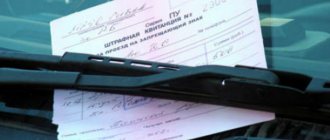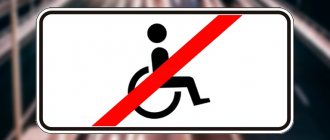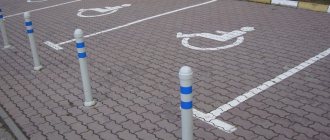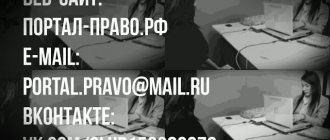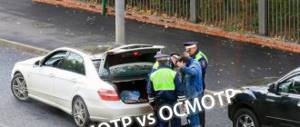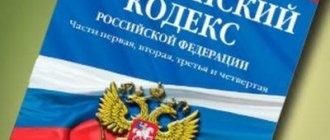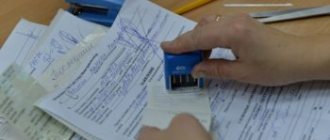Why might the police stop you?
There are actually a lot of options. Let's look at the most common ones:
- Just. The policeman didn't like you. He disliked you.
- The policeman stops everyone. He was given this task.
- You match the leads that the police have.
- You are under the influence of alcohol or drugs.
- Someone pointed a finger at you as if you were someone who had committed a crime.
- You were in the wrong place at the wrong time. Such places include disadvantaged areas, as well as parks. The police go around and look for those who make bookmarks. If you are walking alone, the likelihood that you will be stopped is very high.
- Well, the most unpleasant thing. If they want to give you something forbidden.
What rights do employees of the Russian Guard have?
Rights, as well as obligations, are also regulated by Federal Law No. 226-FZ. This includes the following:
- If special events are held, the National Guard may detain and open any vehicles. For example, if the capture of a criminal who has escaped from a correctional colony or a citizen suspected of committing a crime is organized. Special events are appointed by order of senior heads of departments in the constituent entities of the Russian Federation.
- Cordon off certain sections of roads.
- Demand passports from citizens for verification if there is reason to suspect that they are wanted; there is a reason to initiate proceedings under the Code of Administrative Offenses of the Russian Federation; there are grounds for detention.
- When citizens are detained, deliver them to the police.
- Inspect cars on guarded sections of roads.
- Prevent administrative violations.
Let's take a closer look at the latter. Liability for violation of traffic rules is regulated by Ch. 12 Code of Administrative Offenses of the Russian Federation. If a National Guard sees that a driver is driving in the oncoming lane or is about to park in the wrong place, he can only prevent this. The traffic police will fine you.
Procedure and instructions for communicating with police officers
- Keep calm. If you start to get nervous, the police will notice and this will only strengthen their confidence in your guilt.
- Answer briefly and monosyllabically, or you may not answer at all.
- Ask to see your ID. Remember the data from there or take a photo. Data that will be needed to identify the police officer who stopped you: Full name, what station he is from.
- Ask why you were detained. Ask for clarification of rights and obligations, refer to the law.
- If they want to search you without your consent and without witnesses, and also if you feel danger emanating from the police, you can call 02 or the helpline of the Ministry of Internal Affairs and say that unidentified persons want to search you in violation of the law, then give the details of the police officers who stopped you. Ask to check them and also ask if what they are doing is legal or not.
- If that didn't help either. Then demand that an inspection report be drawn up, and also that witnesses be involved. If you do start to be searched with or without witnesses, then remember the basic rules:
— If your phone is not taken away, then start filming all police actions. — Don’t take anything out of your pockets yourself, in case something was planted on you, then your fingerprints will remain there. - If they ask you to pick something up from the ground, saying that it fell out of your pocket, do not pick it up.
Powers of teaching staff
Now let's look at the powers of teaching staff. They already belong to the police, which means they should have more powers similar to the State Traffic Inspectorate. But how strong are these similarities?
Stopping a car
The reasons for stopping the car are listed in paragraph 84 of Order of the Ministry of Internal Affairs No. 644. And this document does not distinguish between PPS and traffic police officers. He points out that any police officer can stop a civilian vehicle. More details about the possible grounds for stopping and whether traffic police officers can stop drivers without reason are written in a separate material (INSERT LINK TO ARTICLE “Can traffic police stop without reason”).
Verification of documents
And again, based on the same Order No. 644, PPS employees can also check the documents that every driver must have with them: license plate, vehicle registration certificate, compulsory motor liability insurance policy.
In addition, the teaching staff is assigned the following powers and/or responsibilities:
- knowledge of traffic rules;
- removal of drunk drivers from driving vehicles;
- eliminating obstacles that pose a threat to road safety;
- when an accident is detected, providing first aid, ensuring a safe detour for other road users and identifying the persons involved in the accident.
Can a police officer issue a fine?
According to the law, a police officer has every right to draw up a protocol on an administrative offense in the same way as an employee of the State Traffic Inspectorate. However, there are a couple of important nuances to consider here.
Firstly, drawing up a protocol and assigning a fine are 2 different actions. The protocol itself does not impose a fine; it only serves as the basis for issuing a decision. It is the decision that means the imposition of a fine. And if it is drawn up on the basis of a protocol on violation of Chapter 12 of the Code of Administrative Offenses (that is, for violating traffic rules), then only a traffic police officer can issue it. Therefore, if a police officer notices any violation on the road, he can and should stop the car, draw up a report and send it to the traffic police.
Secondly, there are some offenses that only traffic police officers can record, for example, speeding, driving while intoxicated, or refusal to undergo examination (police police officers do not have special devices: radars and breathalyzers). PPS nicknames can record violations of Chapter 12 of the Code of Administrative Offenses, listed in articles: 1-3, 6, 7, 10-20, 25 and 29.
If you were taken to the police station? Basic rules of conduct in the precinct.
- Answer briefly and monosyllabically, or you may not answer at all.
- Call your family or friends and tell them where you are
- Specify as much information as possible, namely why you were detained and what charges are being brought.
- Ask for a lawyer
- Don't sign anything
- Take photographs of all documents that are shown to you or that you suddenly signed.
Basic rules of law when dealing with police officers.
1) Police officers are obliged to be polite and treat citizens with respect: According to paragraph 1, paragraph 2 of Art. 5 Federal Law “On the Police”, clause 1. The police carry out their activities on the basis of observance and respect for the rights and freedoms of man and citizen. clause 2. Police activities that restrict the rights and freedoms of citizens are immediately terminated if a legitimate goal is achieved or it becomes clear that this goal cannot or should not be achieved by limiting the rights and freedoms of citizens. According to the Charter of the PPS, clause 226. An employee of the PPS unit in any conditions must be polite and tactful with citizens, address them as “you”, state their demands and comments in a convincing and understandable form, and avoid disputes and actions that offend their honor and dignity. In the event of a citizen’s appeal, the patrol (guard) police officer is obliged to state his position, rank, surname, listen carefully to him, take appropriate measures within the limits of his powers, or explain whose competence it is to resolve the issue raised. p. 229. When talking with citizens, police patrol officers are obliged to show calm and restraint, should not enter into arguments, lose self-control, respond to rudeness with rudeness and not be guided in their actions by personal hostile feelings. p. 230. If the offender reacts excitedly to the comments made to him, he must be given time to calm down and given the opportunity to give an explanation about his unlawful actions, and then explain the incorrectness of his behavior with reference to the relevant laws or other regulatory legal acts. Only after this can a decision be made to draw up a protocol, deliver the offender to the internal affairs department (department), or limit himself to a remark. 2) In what cases can the police stop you and ask you to show your passport? By virtue of clause 2 of part 1 of article 13 of the Federal Law “On the Police”, the police can: clause 2. Check the identity documents of citizens if there is data giving grounds to suspect them of committing a crime or to believe that they are wanted, or if there is a reason to initiate proceedings regarding an administrative offense against these citizens, as well as if there are grounds for their detention in cases provided for by federal law; check from citizens, officials, public associations and organizations permits (licenses) and other documents to perform certain actions or to carry out a certain type of activity, control (supervision) over which is entrusted to the police in accordance with the legislation of the Russian Federation; According to the Charter of the PPS, clause 233. When checking, citizens’ documents must be handled carefully and not made any marks on them. If money and other securities are invested in the document, you must invite the owner to take them himself. There are sufficient grounds to suspect a person of committing a crime in accordance with Art. 91 of the Code of Criminal Procedure of the Russian Federation are the following circumstances: - when a person is caught committing a crime or immediately after its commission; - when eyewitnesses, including victims, directly point to this person as having committed a crime; - when obvious traces of a crime are found on the suspect or his clothing, on him or in his home. 3) Police officers are required to introduce themselves and explain the reason for the appeal, Art. 5 of the Federal Law “On the Police” states: clause 4. When contacting a citizen, a police officer is obliged to: 1) state his position, rank, surname, present his official identification at the citizen’s request, and then state the reason and purpose of the appeal; 2) if measures are applied to a citizen that restrict his rights and freedoms, explain to him the reason and grounds for the application of such measures, as well as the rights and obligations of the citizen arising in connection with this. 5. A police officer, if a citizen approaches him, is obliged to state his position, rank, surname, listen carefully to him, take appropriate measures within the limits of his powers, or explain whose competence it is to resolve the issue raised. According to the PPS Charter, paragraph 227. When contacting a citizen, a patrol (guard) police officer is obliged to state his position, rank, surname, present his service ID at the citizen’s request, and then state the reason and purpose of the appeal. 4) The police must give the opportunity to familiarize themselves with the citizen’s documents that affect his rights and obligations, paragraph 7 of Art. 5 of the Federal Law “On the Police” states: clause 7. The police are obliged to provide every citizen with the opportunity to become familiar with documents and materials that directly affect his rights and freedoms, unless otherwise provided by federal law. 5) The police should not use physical force or insult people, Art. 5 of the Federal Law “On Police” states: Art. 5) A police officer is prohibited from resorting to torture, violence, or other cruel or degrading treatment. A police officer is obliged to suppress actions that deliberately cause pain, physical or mental suffering to a citizen. 6) A citizen may refuse to give explanations to the police, according to Art. 51 of the Constitution, paragraph 1. No one is obliged to testify against himself, his spouse and close relatives, whose circle is determined by federal law. 7) Personal search is regulated by clause 16 of Art. 13 of the Federal Law “On the Police” provides that the police have the right to carry out, in the manner established by the legislation on administrative offenses, personal searches of citizens, searches of things on them, as well as searches of their vehicles if there is information about what these citizens have with them weapons, ammunition, cartridges for weapons, explosives, explosive devices, narcotic drugs, psychotropic substances or their precursors or poisonous or radioactive substances, seize these items, means and substances in the absence of legal grounds for carrying or storing them; take part in the inspection of passengers, their hand luggage and baggage on railway, water or air transport, the subway, or carry out such an inspection independently in order to seize things and objects prohibited for transportation by vehicles.” According to Article 27.7. Code of Administrative Offences, clause 1. Personal search, examination of things that are in the possession of an individual, that is, an examination of things carried out without violating their structural integrity, is carried out if necessary in order to detect instruments of committing or objects of an administrative offense. clause 2. Personal search, search of things in the possession of an individual, are carried out by officials specified in Articles 27.2, 27.3 of this Code. clause 3. A personal search is carried out by a person of the same sex as the person being searched in the presence of two witnesses of the same sex. Inspection of things carried by an individual (carry-on luggage, luggage, hunting and fishing tools, obtained products and other items) is carried out by authorized officials in the presence of two witnesses. clause 4. In exceptional cases, if there are sufficient grounds to believe that an individual has weapons or other items used as weapons, a personal search and search of things on the individual may be carried out without witnesses. clause 5. If necessary, photography, filming, video recording, and other established methods of recording material evidence are used. clause 6. A protocol is drawn up about a personal search, search of things that are with an individual, or a corresponding entry is made in the protocol on delivery or in the protocol on administrative detention. The protocol on a personal search, examination of things in the possession of an individual, indicates the date and place of its preparation, position, surname and initials of the person who compiled the protocol, information about the individual subjected to personal search, the type, quantity, and other identifying characteristics of things , including the type, brand, model, caliber, series, number, other identification features of the weapon, the type and quantity of ammunition, the type and details of documents found during the inspection and carried by the individual. clause 7. In the protocol on a personal search, examination of things in the possession of an individual, a record is made of the use of photography, filming, video recording, and other established methods of recording material evidence. Materials obtained during a personal search, examination of things in the possession of an individual, using photography, filming, video recording, and other established methods of recording material evidence, are attached to the corresponding protocol. clause 8. The protocol on a personal search, examination of things in the possession of an individual, is signed by the official who compiled it, the person against whom proceedings are being conducted for an administrative offense, or the owner of the things subjected to search, by attesting witnesses. If the person against whom the proceedings are being conducted, the owner of the things subjected to inspection, refuses to sign the protocol, a corresponding entry is made in it. A copy of the protocol on the personal search, the search of things in the possession of an individual, is handed over to the owner of the things subjected to search, at his request.  Chief of the PPS, Commander of the PPSP unit
Chief of the PPS, Commander of the PPSP unit
Sign up for a consultation
Rights and responsibilities of teaching staff
Control over road safety, as mentioned above, is carried out by traffic police officers. They have the right to stop cars, check documents, and document violations. However, in addition to the traffic police, there is a teaching staff in the system of the Ministry of Internal Affairs of the Russian Federation.
Its employees often slow down motorists, check documents, inspect the vehicle, etc. However, do patrol officers have the right to do this?
In order to answer this question, you need to define the very concept of “Patrol and guard service”. The PPS is a division of the Russian Ministry of Internal Affairs, whose responsibilities include preventing and suppressing violations of law and order on the streets and in public places, including on the roads, so that its employees have the right to take the necessary measures.
Since the PPSP is a police department, it, like the State Traffic Inspectorate, is subject to the Federal Law “On Police”. According to Article 13 of this law, the police have the right to stop a car, check whether the driver has a license and an insurance policy, if this is necessary to ensure road safety.
Also, the rights and responsibilities of both car owners and police officers are established in the traffic rules. According to paragraph 2.1.1., if a police officer stops a car to check documents, if this is necessary to fulfill his duties to ensure order on the road, the driver is obliged to provide them.
The Federal Law “On Police” gives the right to police officers (whose ranks include police officers) to “slow down” a car. And traffic rules indicate to drivers that they must obey the requirements of law enforcement officers.

